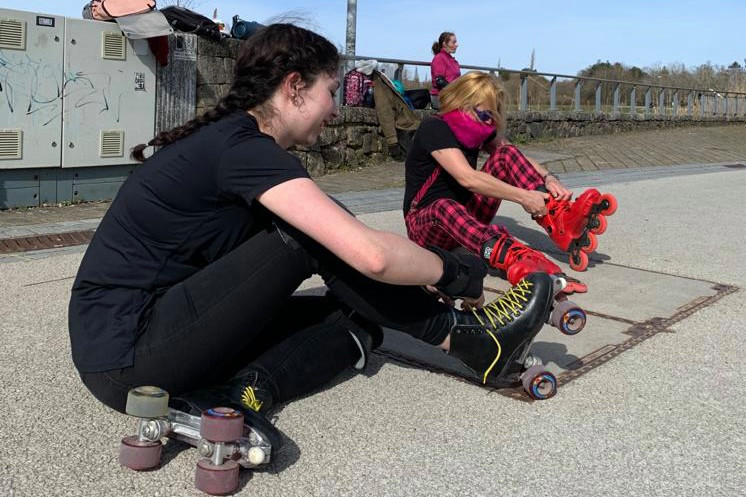With demands to lower energy consumption, cities all over Europe have abandoned plans for ice rinks at Christmas markets. Some, like Huy and Mons in Belgium, opted for an alternative to give their citizens something to look forward to--roller rinks. While some still see the sport as old-school and a dying art, the world witnessed a boom in interest for the skating during the covid lockdown.
A diverse, open community
It was also at that time that the idea of a skating club sprouted in the mind of Anne Wagner. “I kept on seeing videos of people roller skating and inline skating.” A new pair of skates in hand, Wagner decided to start a community in Luxembourg so she wouldn’t have to exercise the sport on her own. “From October to December, there were about thirty people on , it was really small--even for meetings, there weren’t many people.”
Since then, the community has grown--in the two years since its creation, around 260 fans have joined the group, and a new page has been created, “to help grow the community organically.” Wagner--who has a background in communications--has been able to rely on her knowledge to attract more attention to her group.
Meetings for now take place on sunny days and outdoors. Anyone with skates (and protective gear, if they want) can join, regardless of their age and skill level. “It was important for us that anyone could join our club,” Wagner explains. Though there is an age limit of 16, the lack of a membership fee ensures accessibility to events.
“Thankfully, not all members come up at once”, Wagner laughs, as the group skates in public spaces. The group is multicultural and is comprised of people who have found one another not only during lonely covid times, but also as newcomers to the country.
The struggle of finding space
During the sessions, members get to try out new tricks, share moves with one another, or simply skate and slalom around the place. For now, Wagner organises the events in locations like empty parking lots or around the popular skating spots of the Kirchberg district. Sometimes, the group skates on trails around the country.
But, during the colder, wetter months, the group has had trouble finding places to further their skills. Rollerskates aren’t compatible with rain, meaning that the group would have to find an indoors spot until the rain lets up.
The solution? “Someone from another skating community recommended renting out a sports hall, so we can skate, because there aren’t many large covered surfaces in the country that could work.” But, “it might be difficult, because Luxembourg’s a little bit less tolerant,” Wagner says, mentioning Luxembourg’s roller derby club which had to stop activities as it couldn’t find underground parking spots or sports hall for regular practice.
While Wagner understands that some people might be worried about the damage to the wooden floors, she still hopes to find a commune that will give her a thumbs-up. The Luxembourg Skates founder remains optimistic: “Opportunities always pop up.”
